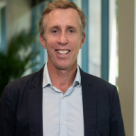Fuelling our Olympians:
The sports dietitian who helped the Australian Dolphins prep for Paris 2024

Australia’s Olympic swimmers flew to France in June 2024 to prepare for the race of their lives. Bond University Associate Professor and sports dietitian Dr Greg Cox was there alongside the team, helping them towards peak performance.

Dr Cox spent 18 months working with the Queensland Academy of Sport (QAS) to assist its Gold Coast-based high-performance squad ahead of the 2024 Olympic Games. The sports dietitian’s focus was helping the swimmers enhance their response to their training and optimise their competition performance. But there’s more to fuelling some of the world’s best swimmers than simply watching what they eat.


The most important meal of the games
Dr Cox believes breakfast is one of the most important parts of preparation for Olympians — but not for the usual reasons. He says introducing a regular group breakfast early in the week helps with recovery, refuelling, and fostering cohesion between staff, coaches and athletes. “Rather than a pick-up-and-go scenario, everyone sits down and interacts with each other over the meal," he says.
Just as sharing a meal can bring families and friends closer, a group breakfast provides an opportunity for the Australian Dolphins and their support network to connect.
“When you have an athlete who is comfortable, their wellbeing is in a good spot, and they're feeling connected with other people — you find they're able to give everything and perform at their best.”
Popstar-turned-swimmer, Cody Simpson, gifted the nutritionist an apron inscribed with “Gregfast” — an endearment coined by the athletes to describe Dr Cox's breakfast tradition.

Time zones and temperatures
The Australian Dolphins faced significant changes to their sleep cycles and environment as they arrived in Canet, France, for a pre-camp in June, just days after the Australian trials.
Dr Cox joined the beginning of the five-week camp in a performance support role, recording training sessions for recovery analysis, identifying opportunities for improvement in daily routines, and helping to make the transition as smooth as possible.
“It’s summer in France so it's been important to keep an eye on hydration, the change in the environment, the access to different foods, and the changes in training in the lead-up to the Olympics,” says Dr Cox.
While the athletes are familiar with overseas travel for meets, Dr Cox says support staff have helped put systems in place to replicate routines from home.
“Your fitness, body composition and general health and wellbeing can all change over five weeks if you're not maintaining regular processes and getting back to your usual rhythm.”

Ben Armbruster
Ben Armbruster

Dr Greg Cox
Dr Greg Cox
Moments that mean the most
Now back on the Gold Coast, Dr Cox is poised to watch the Olympians on the screen.
“Contributing to a performance at the highest level is rewarding personally, but mostly from a team perspective,” says Dr Cox. “It's enjoyable to see someone reach that level — and everyone's potential is different. Some people have the potential to win an Olympic gold medal. Others might optimise their personal performance without it getting them a place on the podium.”
The athlete-student parallel
Dr Cox says he gains as much gratification supporting students to achieve their potential. He’s even mistakenly referred to his students as athletes.
“As an athlete, you have a whole series of minor competitions, like you do as a student with assessments, and both develop competencies as they go," says Dr Cox. “As they move through those processes, they continue to develop skills and eventually have success at the end of their journey. I see the two as parallels.”
A journey of growth
Dr Cox says watching the growth and confidence of both students and athletes is his favourite part of work.
“One of my former students is now teaching within the faculty,” he explains. “It’s hard to imagine they once weren’t comfortable getting up in front of their cohort of students."
“Realising that you have contributed to a real shift in someone’s capabilities — I find that journey just as exciting.”




